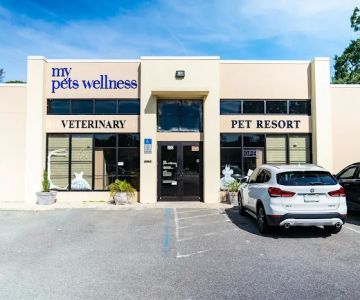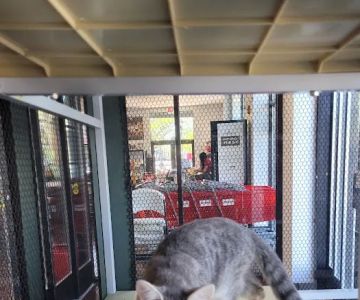- Understanding Pet Digestive Issues
- Common Digestive Issues in Pets
- How to Help Pets with Digestive Problems
- The Importance of Diet in Pet Digestion
- When to See a Vet: Digestive Problems That Need Attention
Understanding Pet Digestive Issues
Digestive problems in pets can be frustrating for both the pet and the owner. The digestive system plays a crucial role in overall health, so when it isn’t functioning properly, it can lead to discomfort, poor nutrition absorption, and a variety of other health issues. Whether your pet is experiencing occasional upset stomachs or chronic digestive problems, understanding the root causes can help you take the right steps to support their health.
Pets, especially dogs and cats, can face a range of digestive issues. These problems may manifest as vomiting, diarrhea, constipation, or changes in appetite. In many cases, these issues can be managed or treated with proper care and diet adjustments. However, chronic or severe digestive problems may require professional veterinary intervention.
Common Digestive Issues in Pets
Several digestive problems are commonly seen in pets, including:
- Vomiting: This can be caused by a variety of factors, including infections, food allergies, or eating something they shouldn't. Occasional vomiting may not be a cause for concern, but persistent vomiting requires attention.
- Diarrhea: Diarrhea can result from changes in diet, stress, or infections. It can also indicate more serious conditions such as inflammatory bowel disease (IBD) or parasites.
- Constipation: Constipation can occur due to dehydration, lack of exercise, or ingestion of non-digestible objects. It may cause discomfort and bloating in your pet.
- Food Sensitivities and Allergies: Pets can develop sensitivities or allergies to certain foods, which can lead to digestive issues like vomiting or diarrhea. This is particularly common with certain proteins or grains.
Recognizing these issues early is essential for effective treatment. A thorough understanding of your pet’s habits and symptoms can help you communicate with your veterinarian about the best course of action.
How to Help Pets with Digestive Problems
Helping your pet manage digestive problems requires a combination of good habits, dietary adjustments, and sometimes medical treatment. Here are several strategies to help improve your pet's digestive health:
- Consistent Feeding Schedule: Establishing a regular feeding schedule can improve digestion and reduce stress on your pet’s digestive system. Avoid feeding your pet large amounts of food at once, as this can overwhelm their system.
- Quality Diet: Provide your pet with high-quality food that is suitable for their specific needs. For pets with sensitive stomachs, look for foods that are easy to digest and free from artificial additives or preservatives.
- Hydration: Ensure your pet has access to fresh, clean water at all times. Dehydration can exacerbate digestive problems, especially in cases of diarrhea or constipation.
- Probiotics: Adding probiotics to your pet’s diet can support healthy gut bacteria and improve digestion. Many pet food brands offer specialized probiotic supplements or you can consult your vet for recommendations.
- Avoid Table Scraps: Feeding pets human food can upset their stomachs and lead to digestive problems. Stick to specially formulated pet foods that cater to your pet’s health requirements.
The Importance of Diet in Pet Digestion
Diet plays a pivotal role in managing your pet’s digestive health. A balanced, nutritious diet helps ensure that your pet’s digestive system operates efficiently, preventing many common digestive issues. Pets with food sensitivities or allergies may benefit from specialized diets formulated to avoid triggering ingredients. Your veterinarian can guide you in choosing the best food based on your pet’s breed, age, and specific health needs.
In addition to choosing the right food, be mindful of feeding habits. Overfeeding or feeding foods that are difficult to digest can strain your pet’s digestive system. Gradually introduce new foods to avoid upsetting their stomach, and monitor for any adverse reactions. If you suspect a food allergy or sensitivity, a diet trial with veterinary guidance may help identify the issue.
When to See a Vet: Digestive Problems That Need Attention
While many digestive issues in pets can be managed at home, some symptoms require immediate veterinary attention. Watch for the following signs that indicate your pet may need professional care:
- Persistent vomiting or diarrhea lasting more than 24-48 hours
- Severe or sudden weight loss
- Signs of dehydration, such as lethargy, dry gums, or sunken eyes
- Blood in stool or vomit
- Abdominal pain, bloating, or discomfort
If your pet exhibits any of these symptoms, don’t wait—contact your vet immediately. Early intervention can prevent further complications and help your pet recover more quickly.
At Hidden Brook Veterinary, we offer a wide range of products and services to help your pet maintain optimal digestive health. From specialized foods to expert veterinary consultations, we are here to support your pet’s well-being every step of the way.












